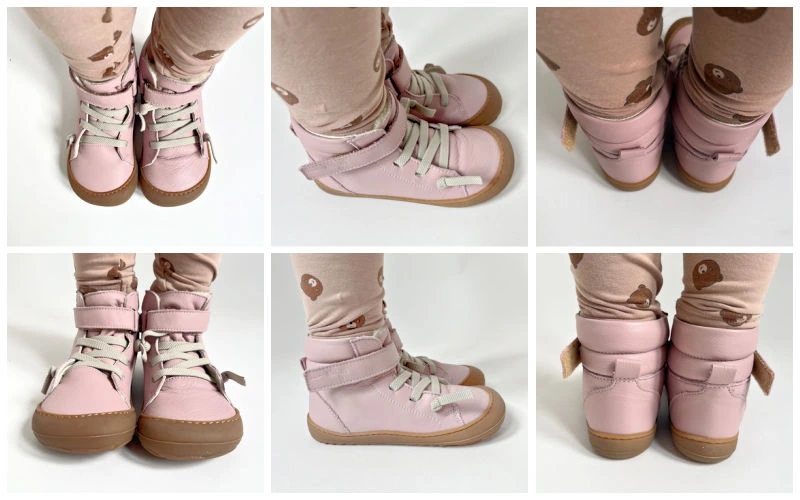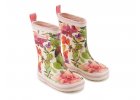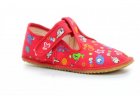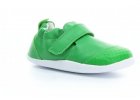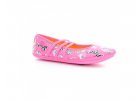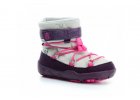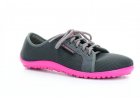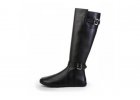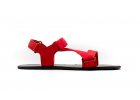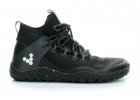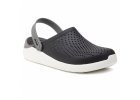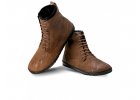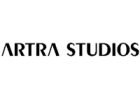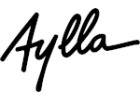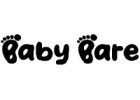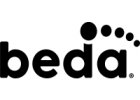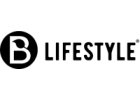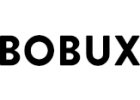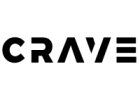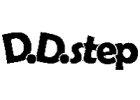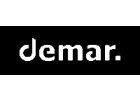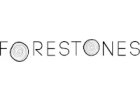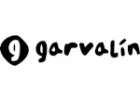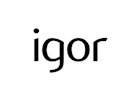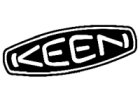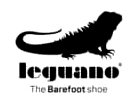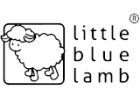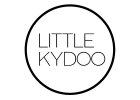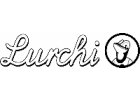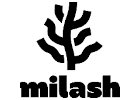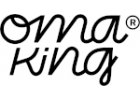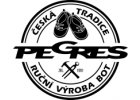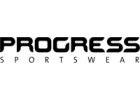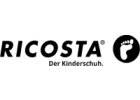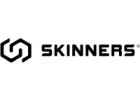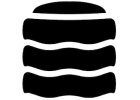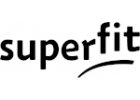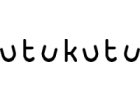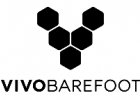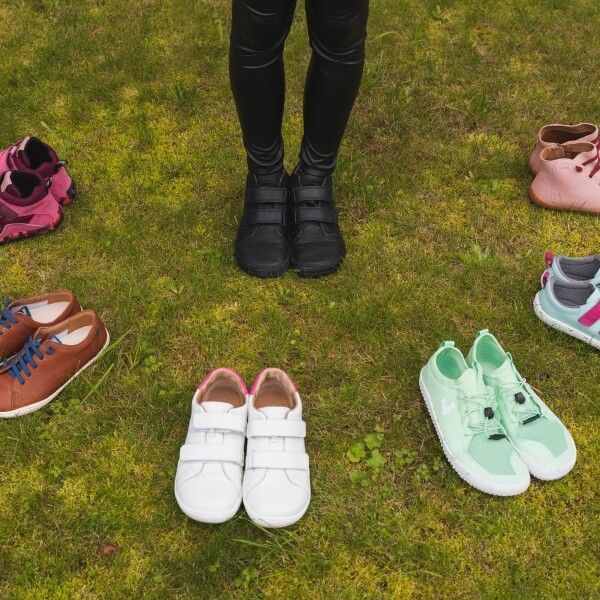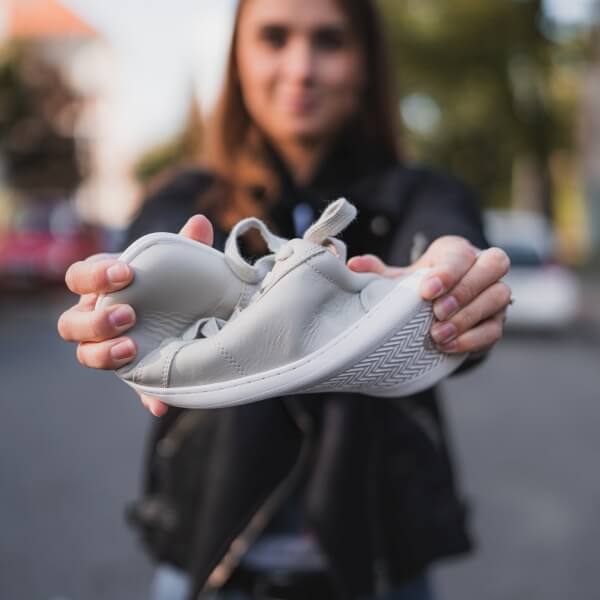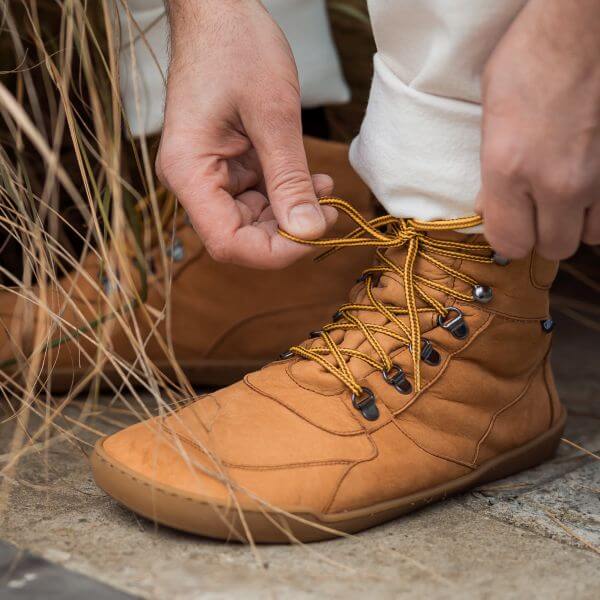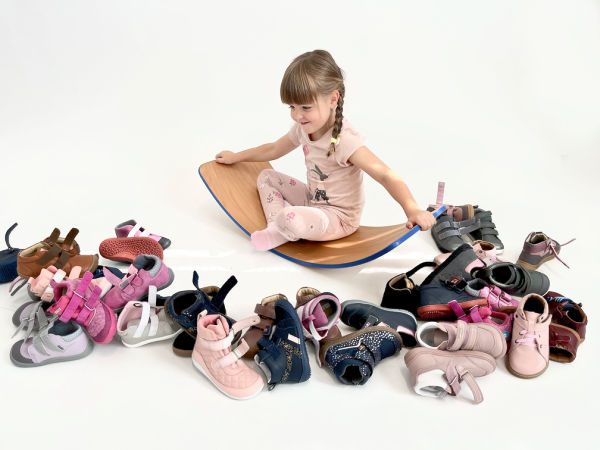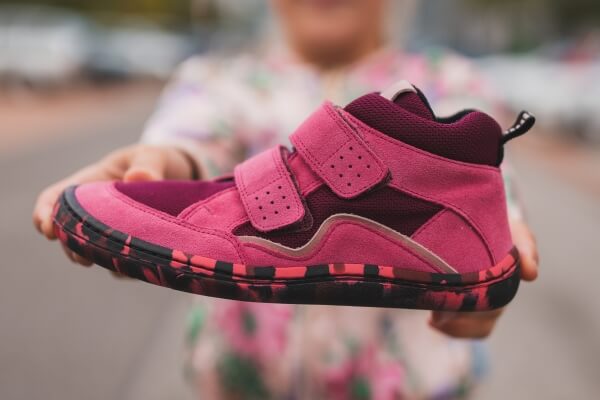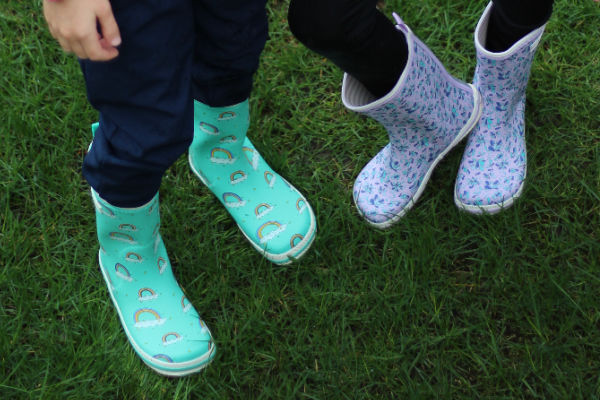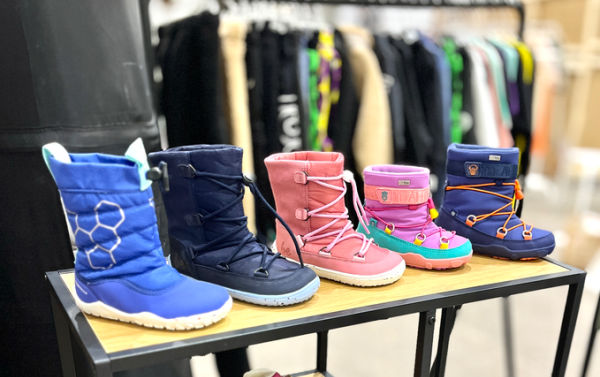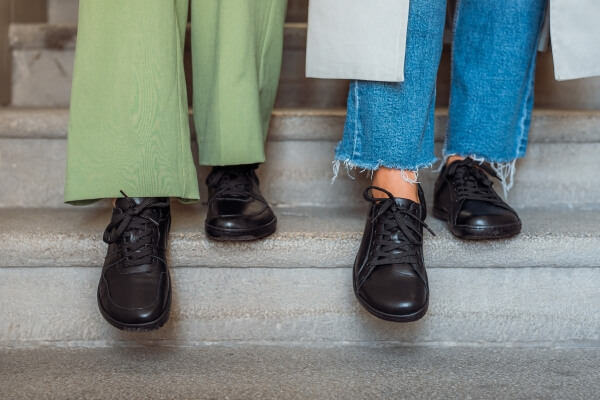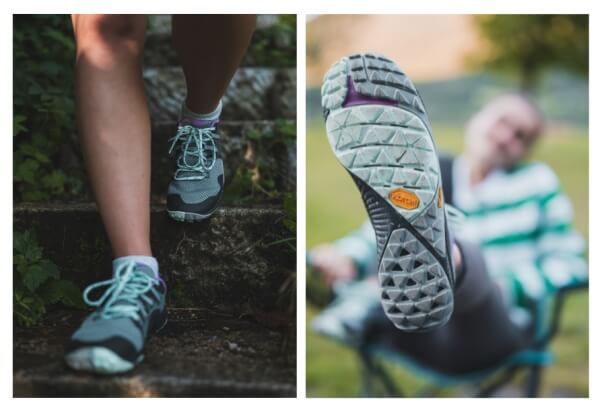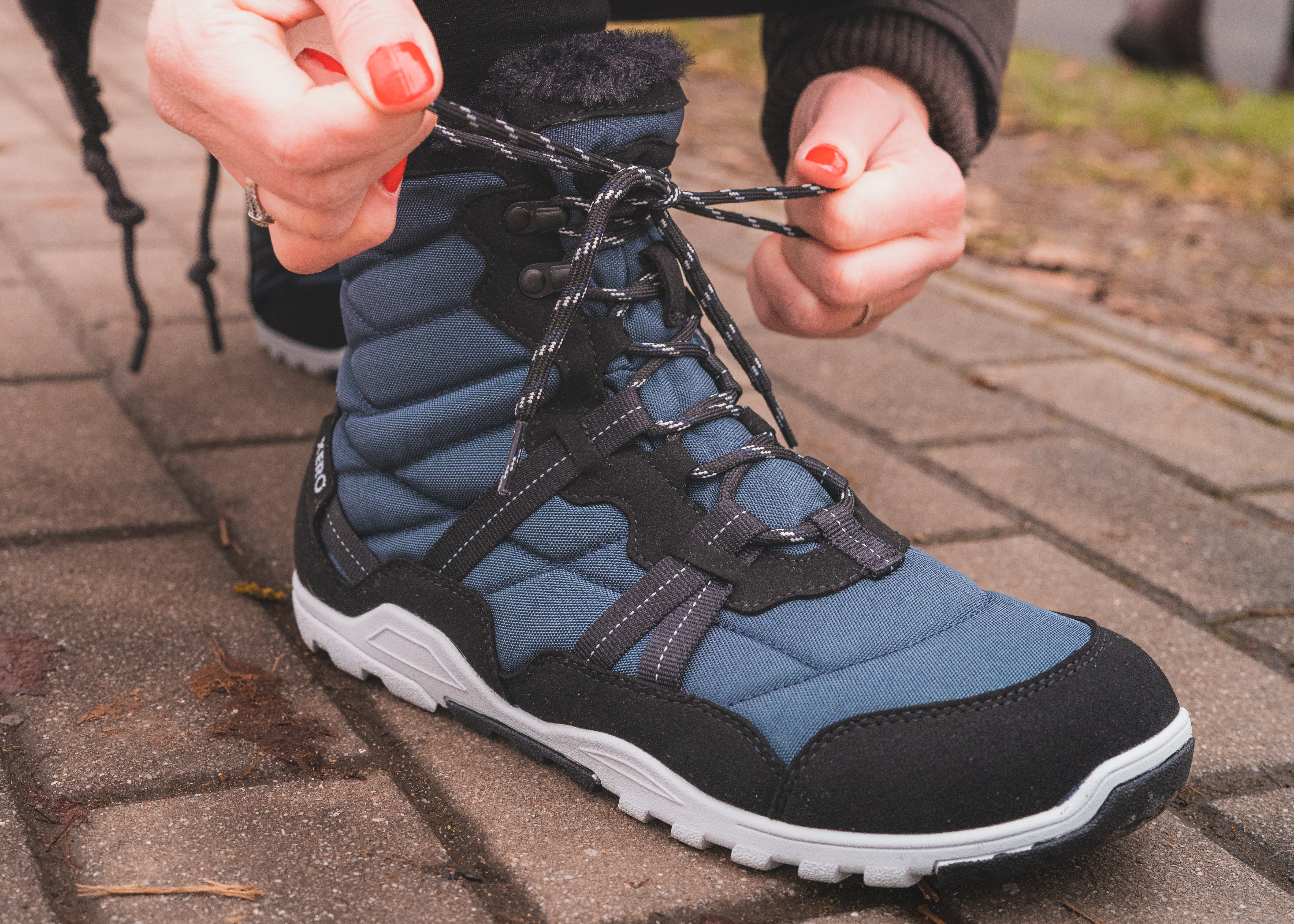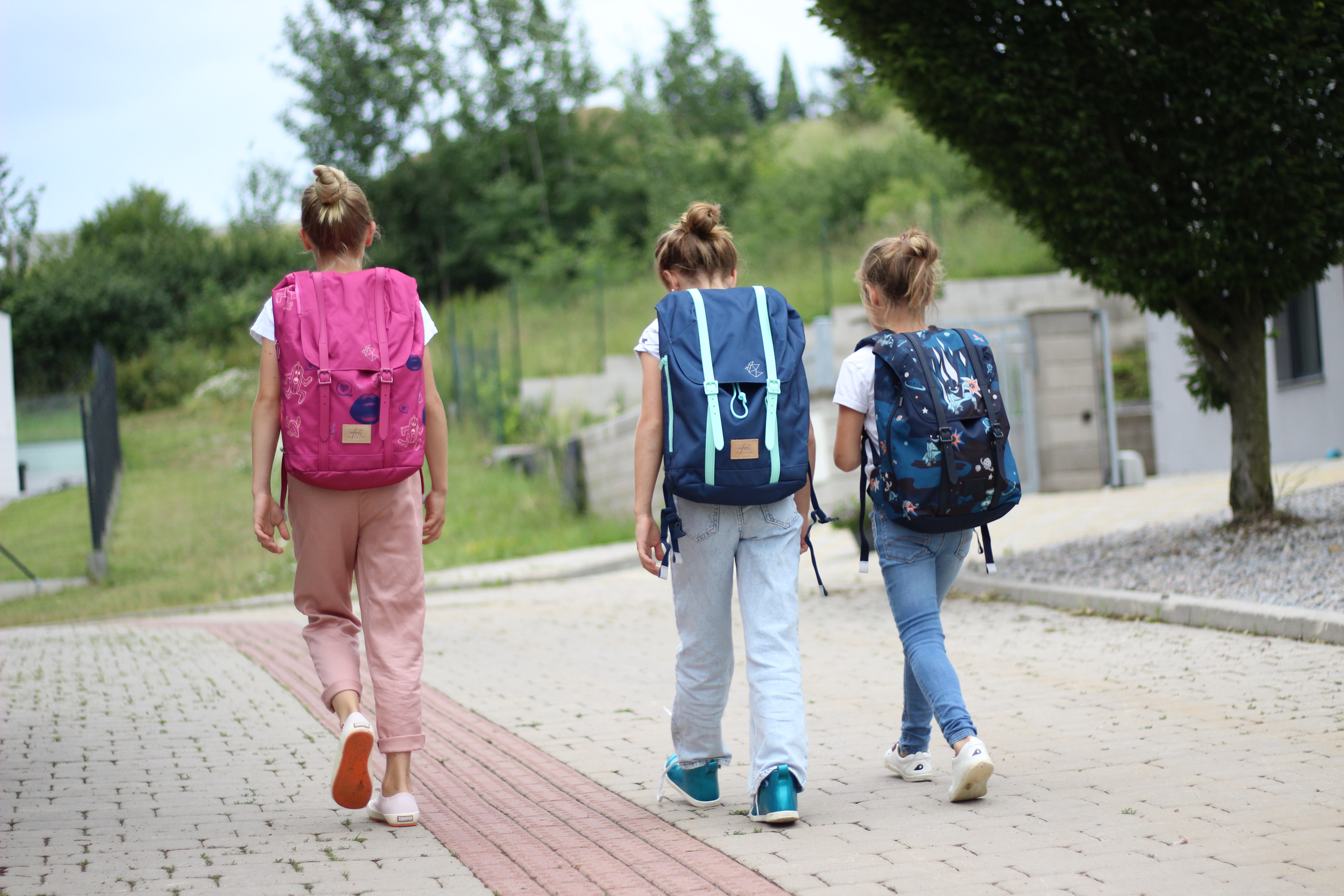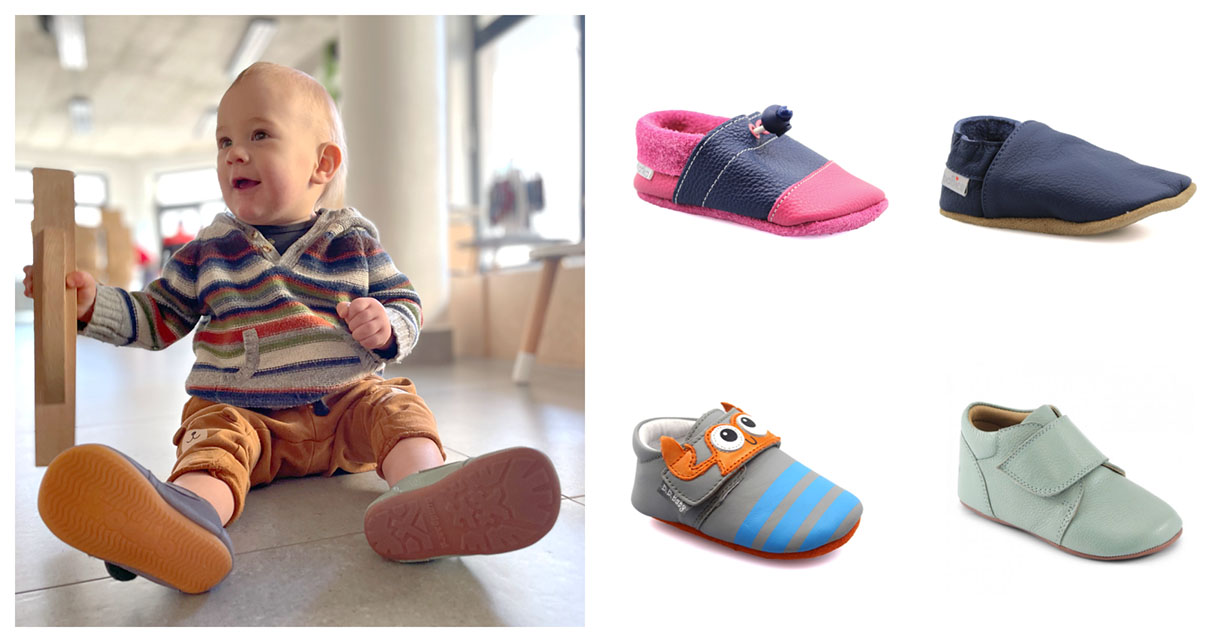Comparison of children's winter barefoot shoes
Winter boots don't have to mean heavy chunky snow boots. Even in cold weather, we recommend wearing barefoot shoes. A boot that gives your foot enough room (and thus the ability to actively work) will also allow thermoregulation. A lot of winter boots are also on a slightly thicker sole, with an anti-slip tread, together with a membrane and a warm fur insulation.
Start by measuring your feet, we recommend a slightly larger margin for a thicker sock in winter boots, around 12-14mm, but be careful not to make it hard for children to walk because of too big boots. Most often children will start to tiptoe in or trip as a result of being too oversized, and we don't want that.
Compare the shape of the toe part of the child's foot and the shoes, the more similar the better. Take into account how much room you need in the instep, what shoes will fit well in the heel and go optimally tight around the ankles. For children with sunken ankles, we recommend choosing shoes with a reinforced heel counter. Everything together is in the summary table and then further detailed and photographed below. And for those of you who don't know what these terms mean, we have described the feet types in a separate article.
Comparison of basic parameters of winter barefoot shoes for children:
In the table you will find the basic characteristics of each model. The information is subjective, as for example heel strength is difficult to compare accurately, but we have tried to quantify the individual properties as objectively as possible.
|
|
BRAND |
TOE BOX SHAPE |
HEEL/ANKLE |
INSTEP |
FLEXIBILITY |
HEEL COUNTER |
WEIGHT |
|
WIDE |
dominant big toe/straight toes |
average/narrow |
average/low |
well flexible |
slightly reinforced |
171 g |
|
|
dominant big toe/straight toes |
average/wide |
high |
well flexible |
without reinf. heel counter |
153 g |
||
|
dominant big toe/straight toes |
average/average |
average |
slightly sturdy |
slightly reinforced |
196 g |
||
|
dominant big toe/straight toes |
narrow/average |
average |
well flexible |
slightly reinforced |
170 g |
||
|
dominant big toe/straight toes |
narrow/narrow |
low |
well flexible |
without reinf. heel counter |
148 g |
||
|
AVERAGE |
dominant big toe/descending toes |
narrow/narrow |
low/average |
well flexible |
slightly reinforced |
197 g |
|
|
curls in at the big toe/descending toes |
average/average |
average |
well flexible |
without reinf. heel counter |
190 g |
||
|
slightly curls in at the big toe/straight toes |
average/average |
average |
well flexible |
slightly reinforced |
185 g |
||
|
dominant big toe/straight toes |
average/narrow |
average |
extra flexible |
slightly reinforced |
161 g |
||
|
dominant big toe/straight toes |
average/average |
higher |
slightly stiffer |
with reinf. heel counter |
215 g |
||
|
dominant big toe/straight toes |
wide/average |
average |
well flexible |
with reinf. heel counter |
204 g |
||
|
slightly curls in at the big toe/straight toes |
wide/wide |
average/ higher |
well flexible |
with reinf. heel counter |
190 g |
||
|
slightly curls in at the big toe/descending toes |
average/average |
average |
well flexible |
with reinf. heel counter |
161 g |
||
|
slightly curls in at the big toe/descending toes |
average/wide |
high |
extra flexible |
without reinf. heel counter |
168 g |
||
|
NARROW |
slightly curls in at the big toe/descending toes |
narrow/average |
average |
sturdy |
without reinf. heel counter |
182 g |
|
|
dominant big toe/descending toes |
narrow/wide |
average/high |
extra flexible |
without reinf. heel counter |
185 g |
||
|
dominant big toe/descending toes |
narrow/narrow |
low/average |
well flexible |
slightly reinforced |
154 g |
||
|
slightly curls in at the big toe/descending toes |
narrow/narrow |
average |
well flexible |
slightly reinforced |
161 g |
Comparison of winter barefoot shoe sole shapes
We recommend focusing in particular on the shape and width at the toe and the degree of taper at the heel. The shape of the shoe will tell you which are suitable for a narrow foot, which for a dominant big toe, which for a wide foot or fin shaped foot.
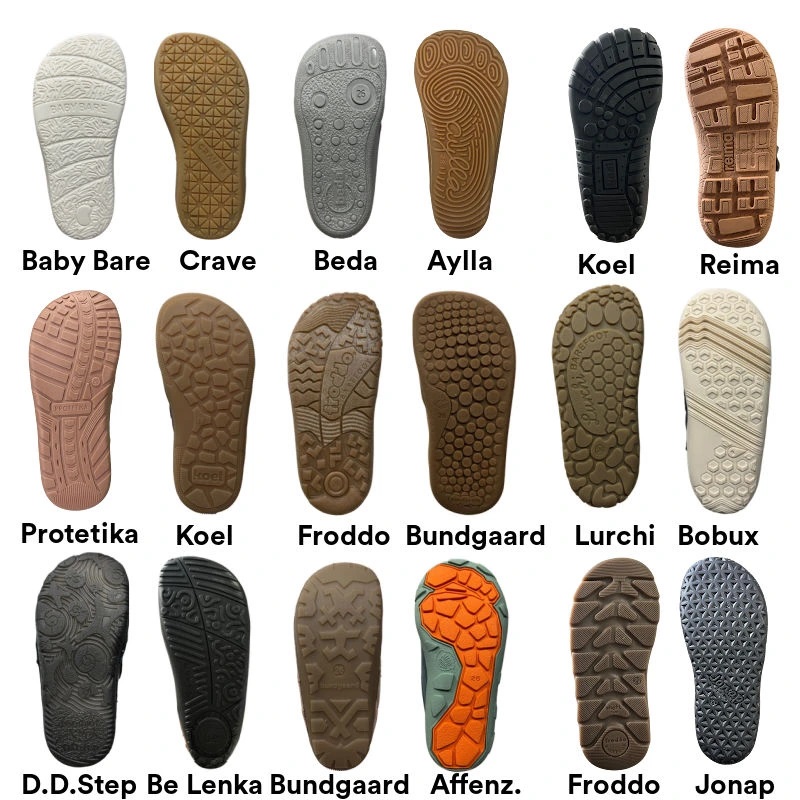
In the last row Bundgaard (model Petit), Froddo (model Flexible), Bobux (model Timber).
Detailed description and photos on the leg
Winter models were put on, photographed and described on the foot 161 x 67 mm, slightly higher instep, all boots are in size 26, but for some brands a larger size would be more suitable for this foot.
Froddo G3160232
- anatomically shaped toe, plenty of room for a dominant big toe
- suitable for the average foot or fin shaped foot
- narrower in the heel, good tightening on narrow ankles
- suitable for lower ankles, chubby feet will not fit in the shoes
- very flexible sole with a more emphasized tread (the compound is more durable this year than on some older models)
- sole approx. 4 mm + 3 mm tread
- zero drop
- moderately firm in the heel, multiple layers of material
- with membrane, therefore only glued sole
- wool fur may bite more sensitive children, after wearing for a while this will improve
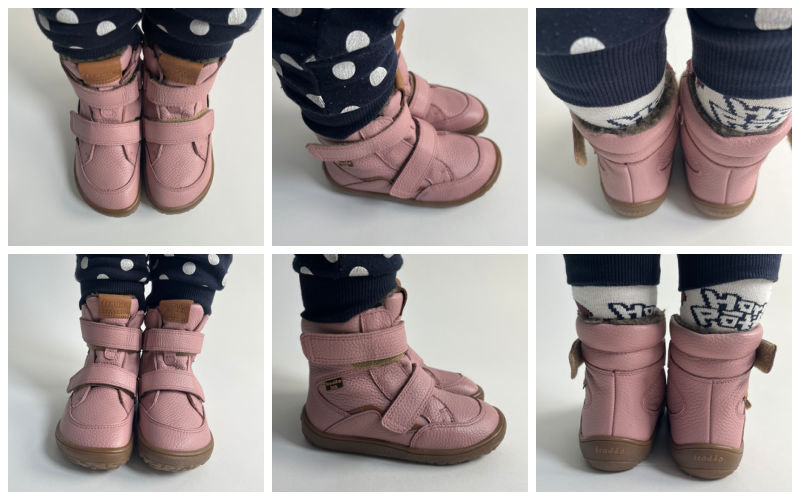
Froddo G3110252
- lower variant compared to model G3160204
- softer lamb fur insulation
- boots suitable for the city - no membrane, stitched around the perimeter
- for the same foot type as the higher model
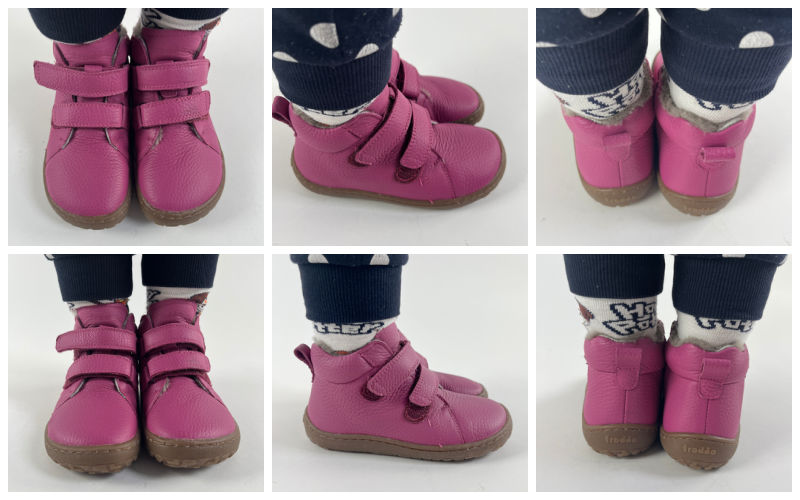
Froddo G3110258 (Zeru)
- suitable for the average foot, not for the dominant big toe
- toe box quite roomy but round, tapers at the toe
- narrower in the heel, good tightening on narrow ankles
- suitable for the average instep
- very flexible sole with minimal tread
- sole approx. 4 mm + 2mm pattern
- softer in the heel
- soft lambskin on the hem of the shoe, inside a bit coarser wool
We are preparing photos on the leg
Beda winter 2 Velcro fasteners (BF 0004/W/MK)
- anatomically shaped toe, suitable for dominant big toe
- suitable for straighter toes, they do not descend towards the little toe
- suitable for average instep
- compared to the 3 Velcro models, the 0004/W/MK is for a narrower heel and narrower ankle
- flexible sole with minimal tread
- sole approx. 4 mm
- zero drop
- without reinf. heel counter, but variants marked OP = heel counter are produced, there is a sturdy heel
- boots with membrane for higher water resistance
- synthetic leather
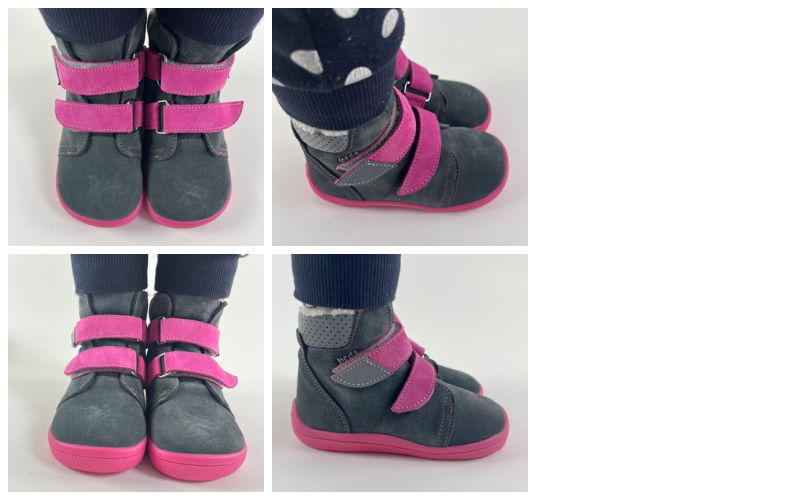
Beda 3 Velcro fasteners (BF 0001/W/MK)
- 3 Velcro models are suitable for overall chubbier feet - they are higher in the instep, looser in the ankles
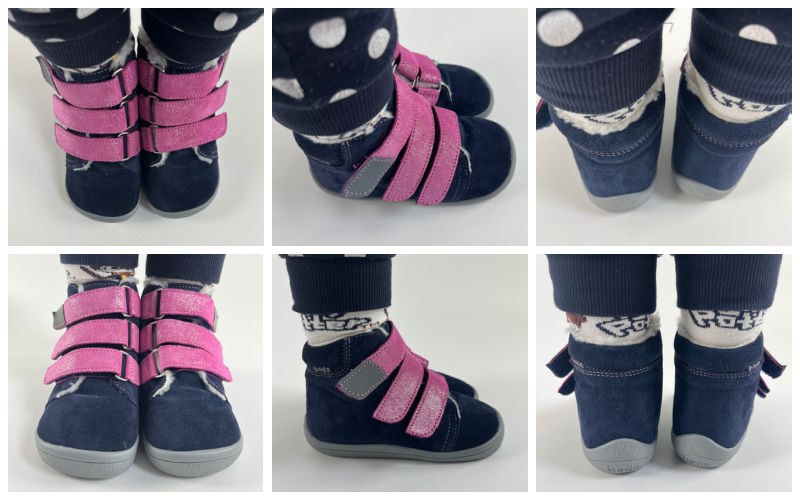
Protetika
- anatomically shaped toe, but curls on the big toe side
- not recommended for dominant big toe
- suitable for average to slightly higher instep
- for average ankles, can be tightened well
- flexible sole with minimal tread
- sole approx. 3 mm + 1 mm sample
- zero drop
- a little firmer in the heel
- synthetic, non-itching leather to the touch
- some models with membrane
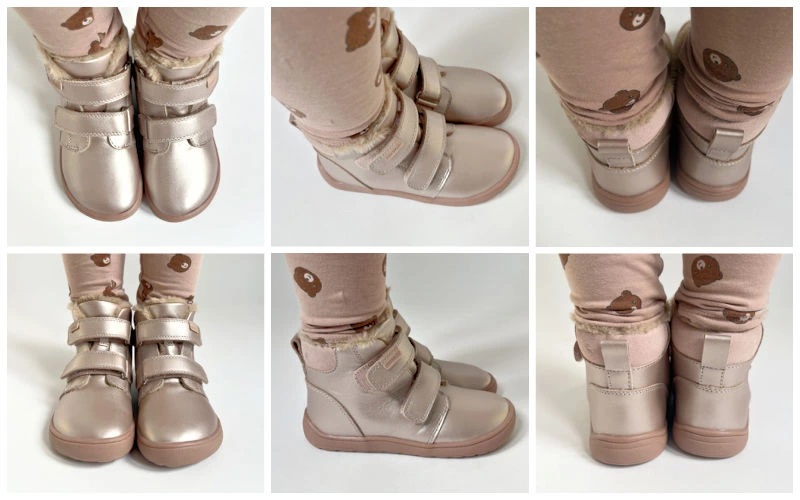
Baby Bare
- anatomically shaped toe box, ideal for dominant big toe
- for straighter toes
- narrower in the heel, suitable for fin shaped feet
- zero drop
- for low instep and narrow ankles
- outsole fully flexible
- approx. 4 mm + 1 mm tread
- without reinf. heel counter, rather soft in the heel
- with waterproof membrane and toe protection stripe
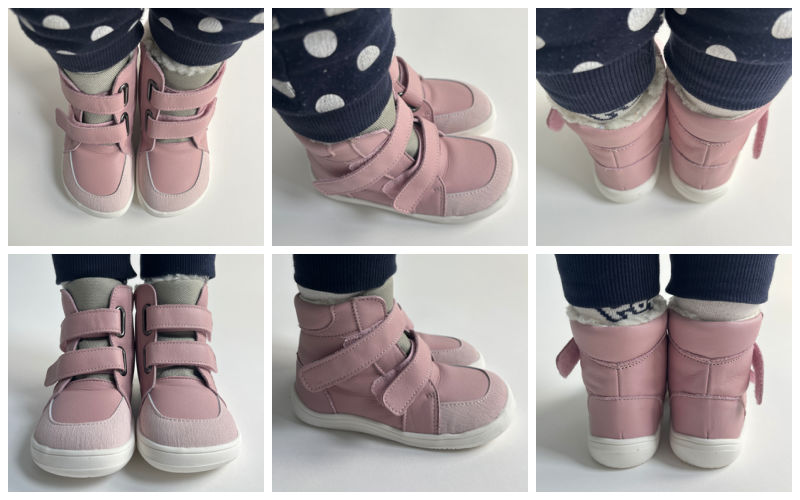
Bundgaard Bobbie
- anatomically shaped toe box, ideal for dominant big toe
- for straighter toes
- narrower in the heel, suitable for fin shaped feet
- zero drop
- for average instep
- good tightening on narrow ankles
- sole fully flexible
- approx. 4 mm + 1 mm tread
- sturdy in the heel
- water-repellent membrane
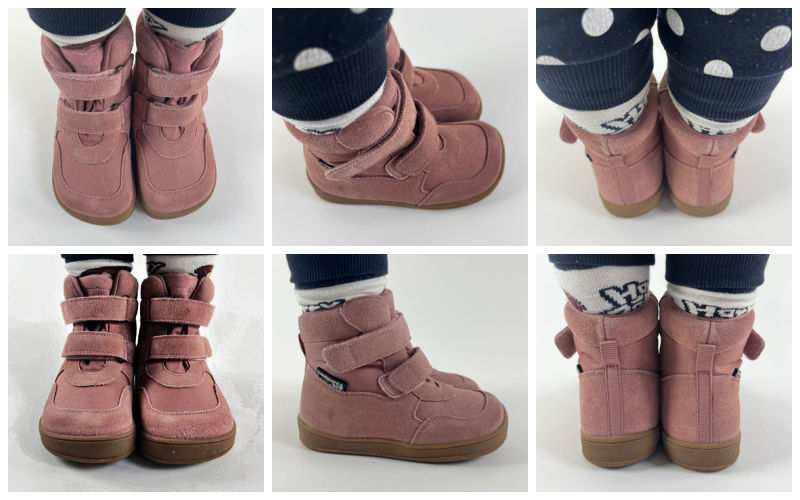
Bundgaard Petit
- anatomically shaped toe box, also suitable for dominant big toe
- for more descending toes
- overall narrower shoe in the toe and heel
- zero drop
- for average and higher instep
- wide at the ankles, cannot be tightened on narrow feet
- sole very flexible
- approx. 3 mm + 1 mm pattern
- without reinf. heel counter, soft in heel
- lambskin - very warm, but very thick, so the shoes are overall more robust
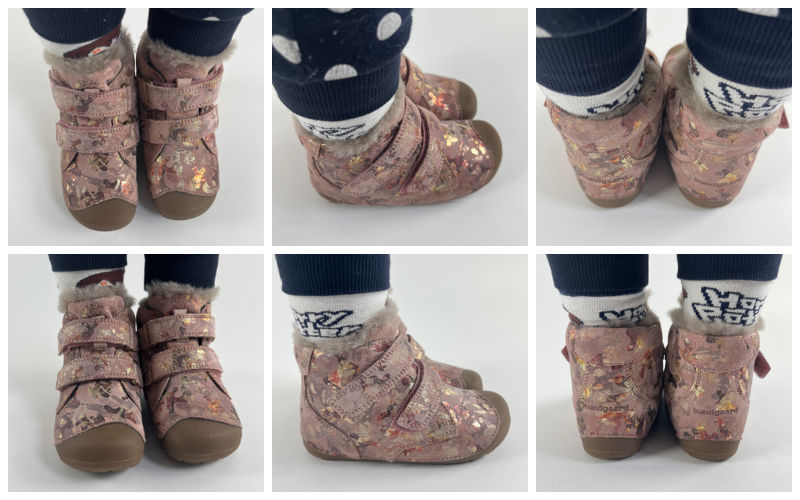
Koel (Bernardo)
- anatomically shaped toe box, ideal for dominant big toe
- for straighter toes
- narrower in the heel, suitable for fin shaped feet
- zero drop
- for average and lower instep
- good tightening on narrow ankles
- sole very flexible
- approx. 3 mm + 1 mm tread
- without reinf. heel counter, rather soft in the heel
- warm, slightly biting insulation; membrane
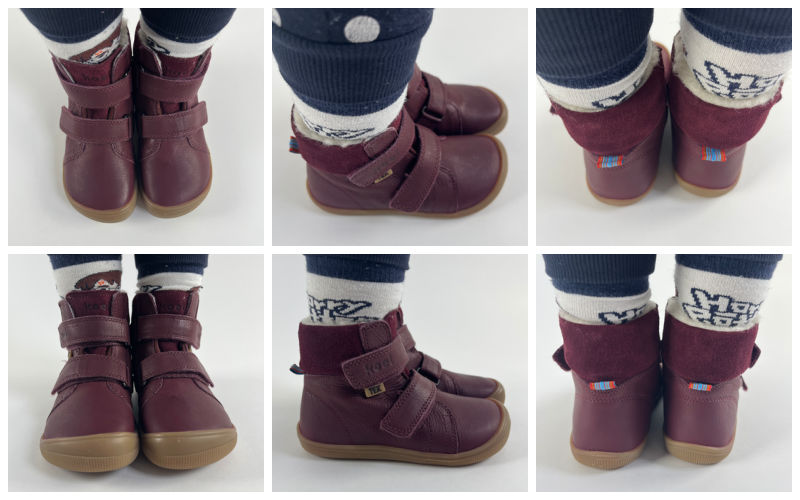
Koel (trek)
- anatomically shaped finger section, ideal for the dominant toe
- for straighter fingers
- average in the heel, narrows at the ankle, fits even children with narrow ankles
- zero drop
- for an average and slightly higher instep
- sole flexible, a little stiffer than bernardo
- approx. 3 mm + 2 mm pattern
- firm in the area behind the heel
- warm, slightly biting leather; membrane
We are preparing photos on the leg
Crave
- anatomically shaped toe box, ideal for dominant big toe
- for straighter toes
- taper in the heel, suitable for fin shaped feet
- narrow at the ankles, also ideal for skinny ankles and wide toes
- zero drop
- for the average instep
- sole fully flexible
- approx. 3 mm + 1 mm tread
- a bit sturdy in the heel
- natural fur
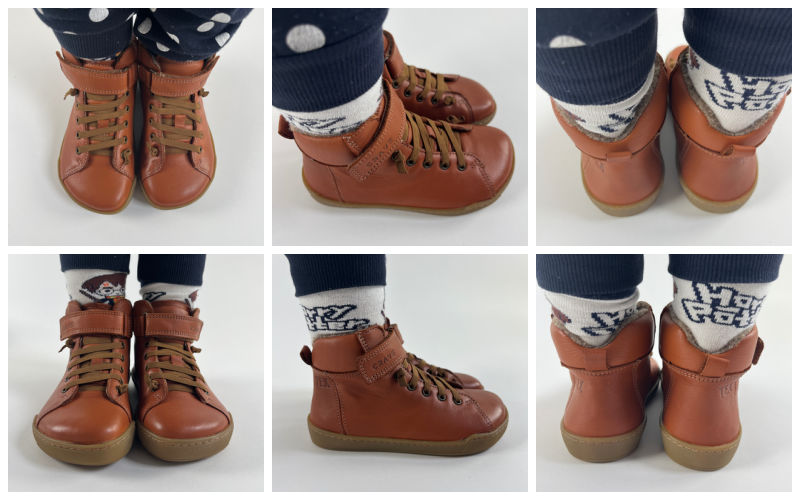
D.D.Step
- anatomically shaped toe box, slightly curls in at the big toe
- for an overall thicker foot, especially at the instep and around the ankles
- zero drop
- sole very flexible
- approx. 3 mm + 1 mm tread
- without reinf. heel counter
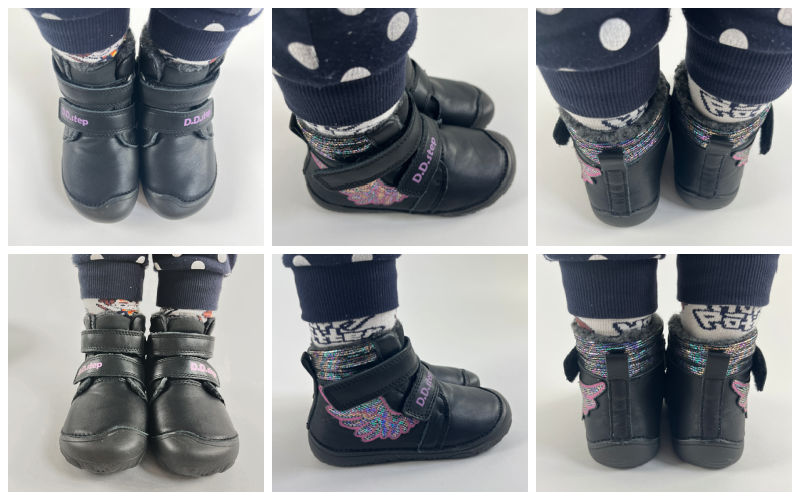
Affenzahn
- anatomically shaped toe box, slightly curls in at the big toe, not ideal for a significantly dominant big toe
- for descending toes
- narrower in the heel
- zero drop
- for average and higher instep
- roomier around the ankles
- outsole a little firmer than most barefoot shoes
- approx. 5 mm + 2 mm tread
- without reinf. heel counter, rather soft in the heel
- with membrane and fur
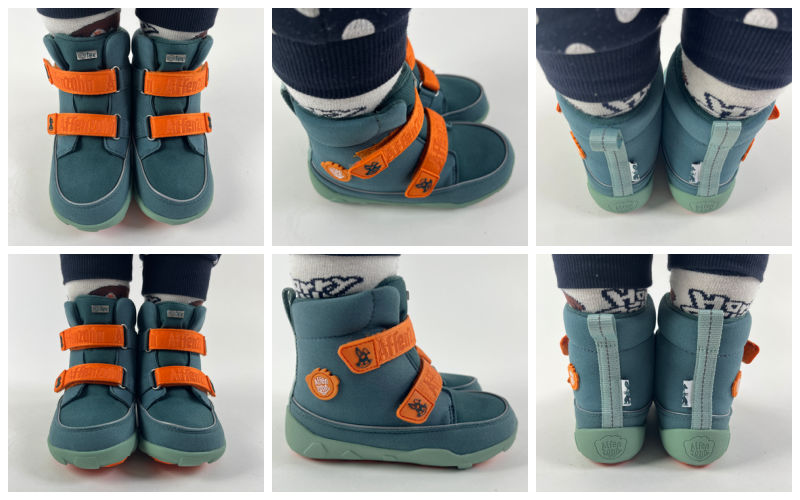
Bobux Patch
- anatomically shaped toe box but slightly tapers at the big toe, not ideal for dominant big toe
- for descending toes
- for a generally narrower foot in the toe and heel
- zero drop
- for average to lower instep
- good tightening on narrow ankles
- flexible sole
- approx. 4 mm + 2 mm tread
- slightly reinforced in the heel
- merino fur insulation
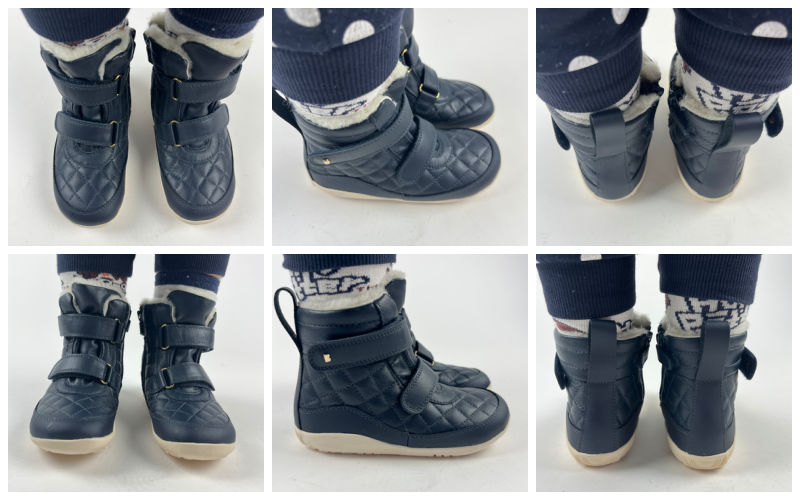
Reima
- anatomically shaped finger part
- flatter, non-descending towards the little finger
- wider in the heel, not recommended for fin-shaped feet and children with narrow heels and ankles
- zero drop
- for average and higher ankles
- sole well flexible, distinctive terrain pattern
- approx. 3 mm + 3 mm pattern
- firm in the heel, with heel counter
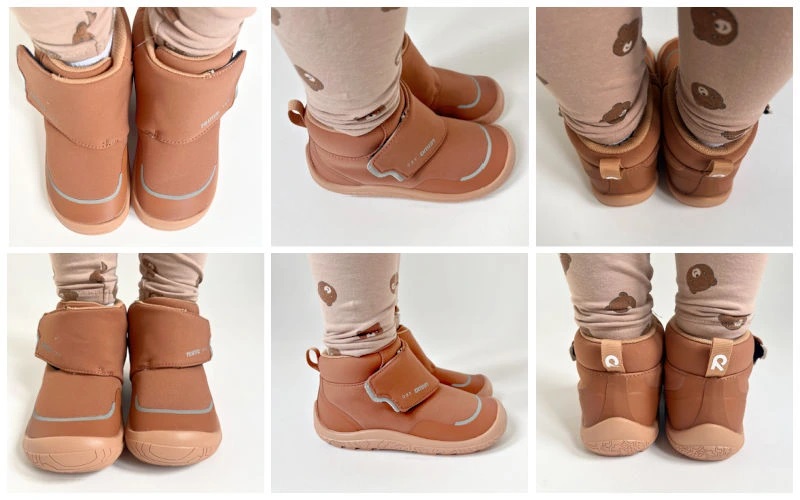
Be Lenka
- anatomically shaped finger section, ideal for the dominant toe
- more descending towards the little finger
- narrow in the heel, suitable for the fin-shaped foot
- also narrow at the ankles
- zero drop
- for the average ankle
- sole well flexible, minimal tread pattern
- approx. 4 mm + 1 mm pattern
- a little firmer in the heel
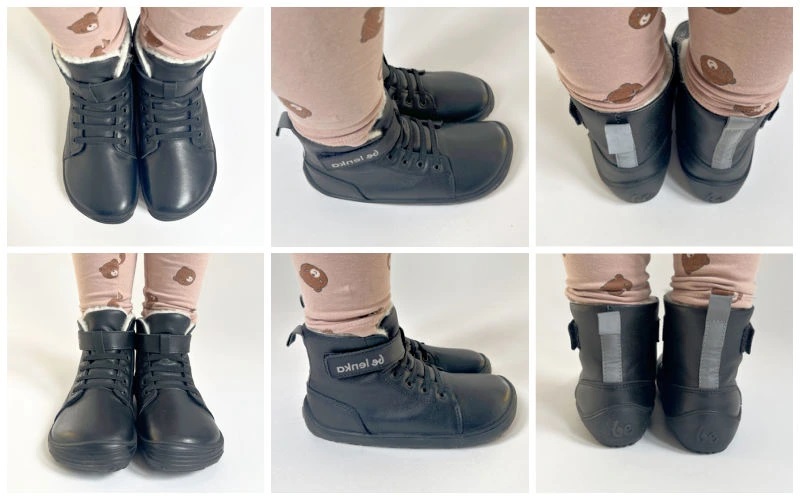
Jonap
- anatomically shaped toe box, slightly curled in at the big toe, not suitable for a significantly dominant big toe
- for descending toes
- narrower in the heel, suitable fin shaped feet
- zero drop
- for average instep (slim model is slightly roomier in the toe)
- good tightening on narrow ankles
- sole fully flexible
- approx. 4 mm + 1 mm tread
- sturdy in the heel
- insulated with natural wool, some models have membrane
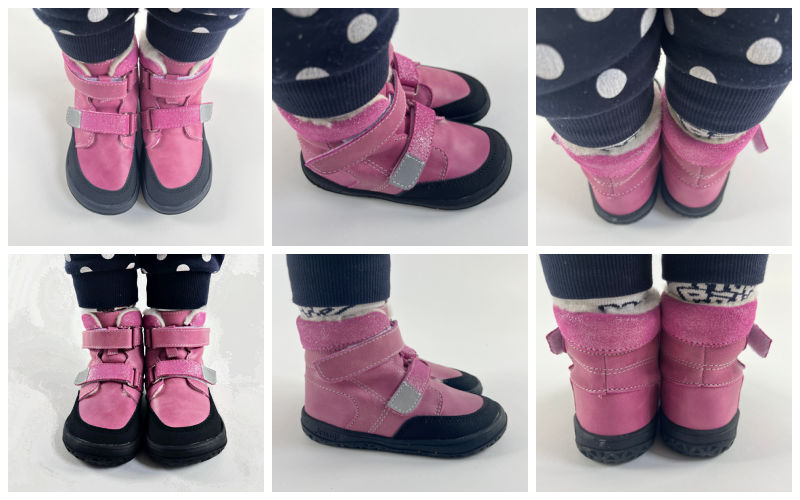
Lurchi
- anatomically shaped toe box, suitable for dominant big toe
- for descending toes
- narrower in the heel, suitable for overall narrow feet
- zero drop
- for average to low instep
- good tightening on narrow ankles
- sole fully flexible
- approx. 4 mm + 1 mm tread
- slightly reinforced in the heel
- insulated with natural wool
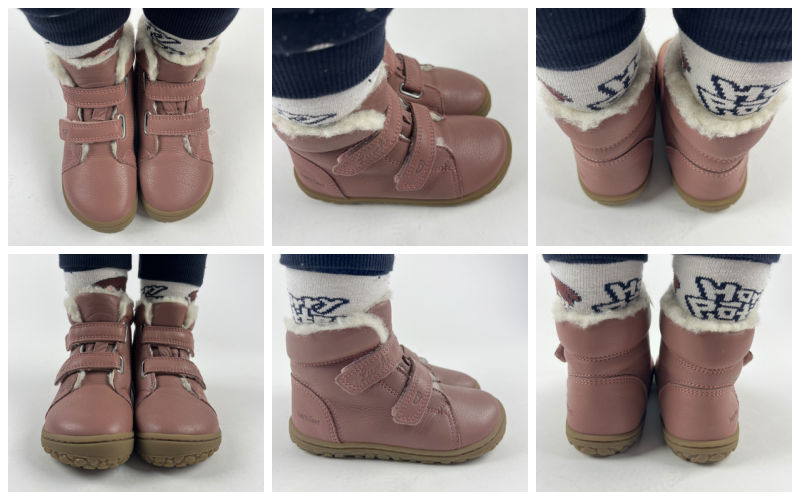
Aylla
- anatomically shaped finger part, suitable for dominant toe
- for straight fingers
- Narrow in the heel, ideal for fin-shaped foot
- zero drop
- for average to low instep
- for average ankles
- outsole fully flexible
- approx. 3 mm + 2 mm pattern
- rather soft in the heel
- insulated with natural wool
